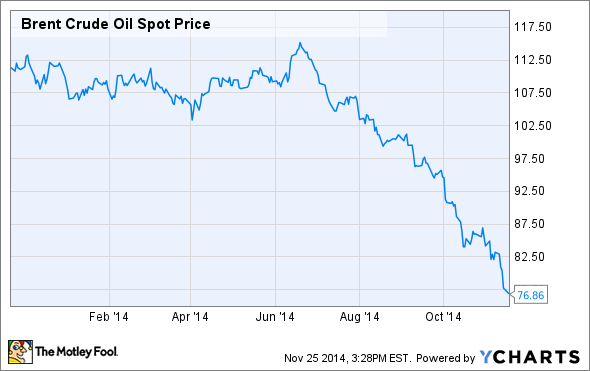
Why So Much Oil Price Volatility? Blame The Speculators

Oil prices crashed last week only to rebound at lightning speed. On August 28, oil prices surged 10 percent, the largest one-day gain in seven years. So, what happens next for oil prices?
On the face of it, the crash and massive rebound makes little sense, with many oil market analysts undoubtedly left shaking their heads.
But there is a logic to what unfolded, just not the logic of the physical market for crude. Oil prices, as if we needed a reminder, are largely driven by speculation. Why else would oil prices plummet by five percent, then spike by 10 percent just a few days later? Not much changed in terms of actual supply and demand of oil in the intervening days.
Sure, Royal Dutch Shell declared force majeure on some oil shipments from Nigeria, as two pipelines had to be shut down. That could interrupt some oil supplies. But other than that, the physical market for crude didn’t see a whole lot of change in just a few days’ time.
The Fed won’t raise rates until the world economy looks healthier, but the world economy is actually OK. Even China is OK. (Apple said that the China consumer is pretty healthy). World economic numbers will look much better in 2016, and central banks outside the U.S. will begin raising rates … and that will finally give the Fed the cover it needs to raise.

The seriousness of last week’s shocking action in the market is shown by the volatility index, which posted its second highest reading since its inception in 1990. This is comparable to the great crash of 2008/9.
Many migrants are crossing from Turkey to Greece, Macedonia and Serbia before entering Hungary and then moving on to wealthier countries in northern Europe. (There is an important legal distinction between a migrant who has fled his or her country and a refugee seeking asylum.) The conditions in which they would wait out approval of their applications in Germany and Sweden are better than in places such as Hungary or Greece.
Both moves—the government pulling back from its market bailout and the currency devaluation—stem from the same ominous problem: China’s leaders are scrambling to find the money to keep its economy running. To understand the broader forces that led to this predicament, here’s a chart-based explainer tracing its origins.
Fermi's Paradox, climate change, capitalism, and collapse are some of the subjects discussed in this feature length documentary on the environmental crisis. Interviewees include Bill McKibben, Gary Snyder, Derrick Jensen, Peter D. Ward, Jill Stein, Bill Patzert, Guy McPherson and other top academics, scientists and public intellectuals.
US
Previous Peak
The EIA’s Monthly Energy Review came out a couple of days ago. The data is in thousand barrels per day and the last data point is July 2015.

US consumption of total liquids, or as the EIA calls it, petroleum products supplied, reached 20,000,000 barrels per day for the first time since February of 2008.
Something I never noticed before, consumption started to drop in January 2008, seven months before the price, along with world production, started to drop in August 2008. This had to be a price driven decline. Could the current June and July increase in consumption be price driven also?

